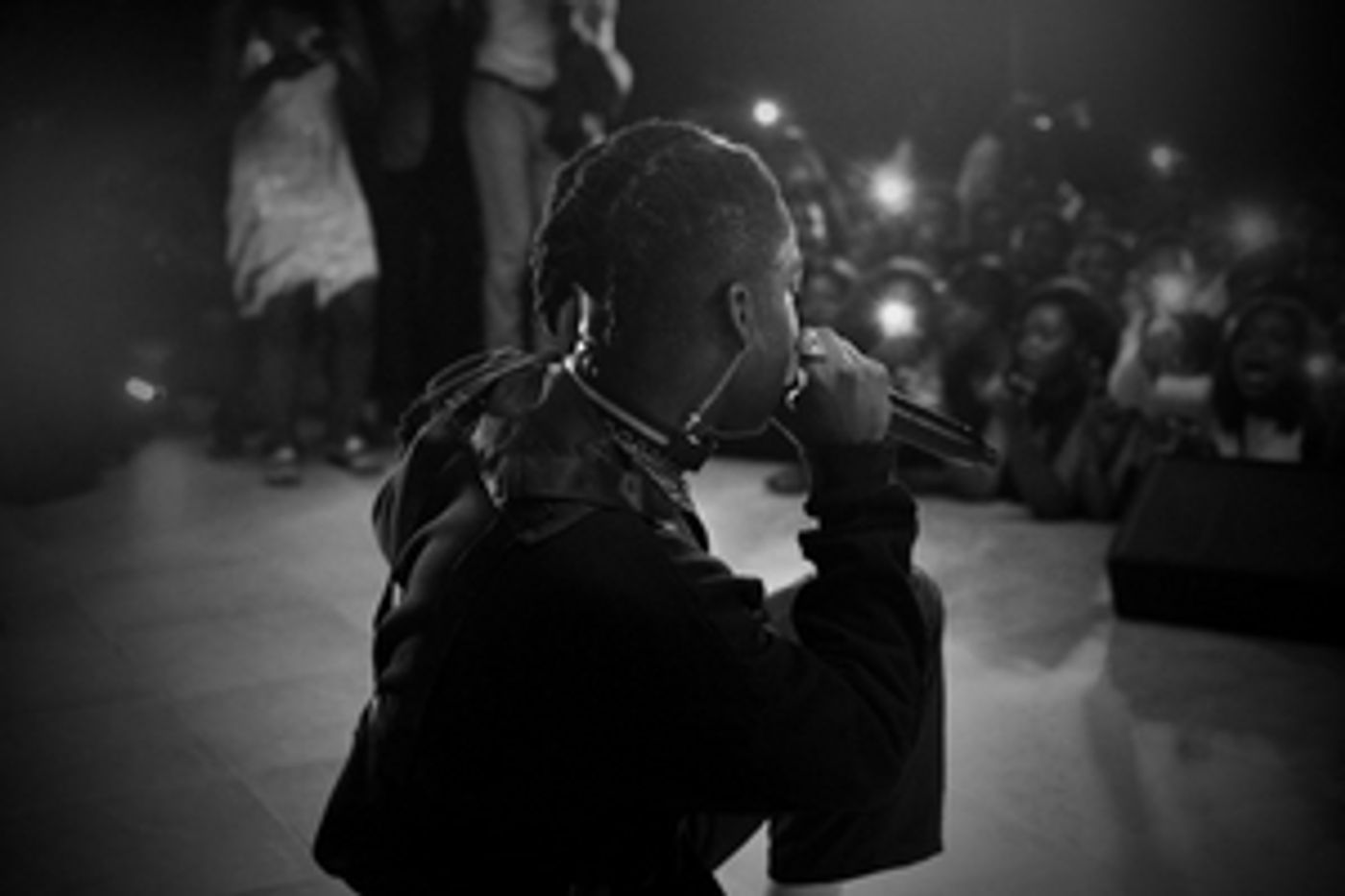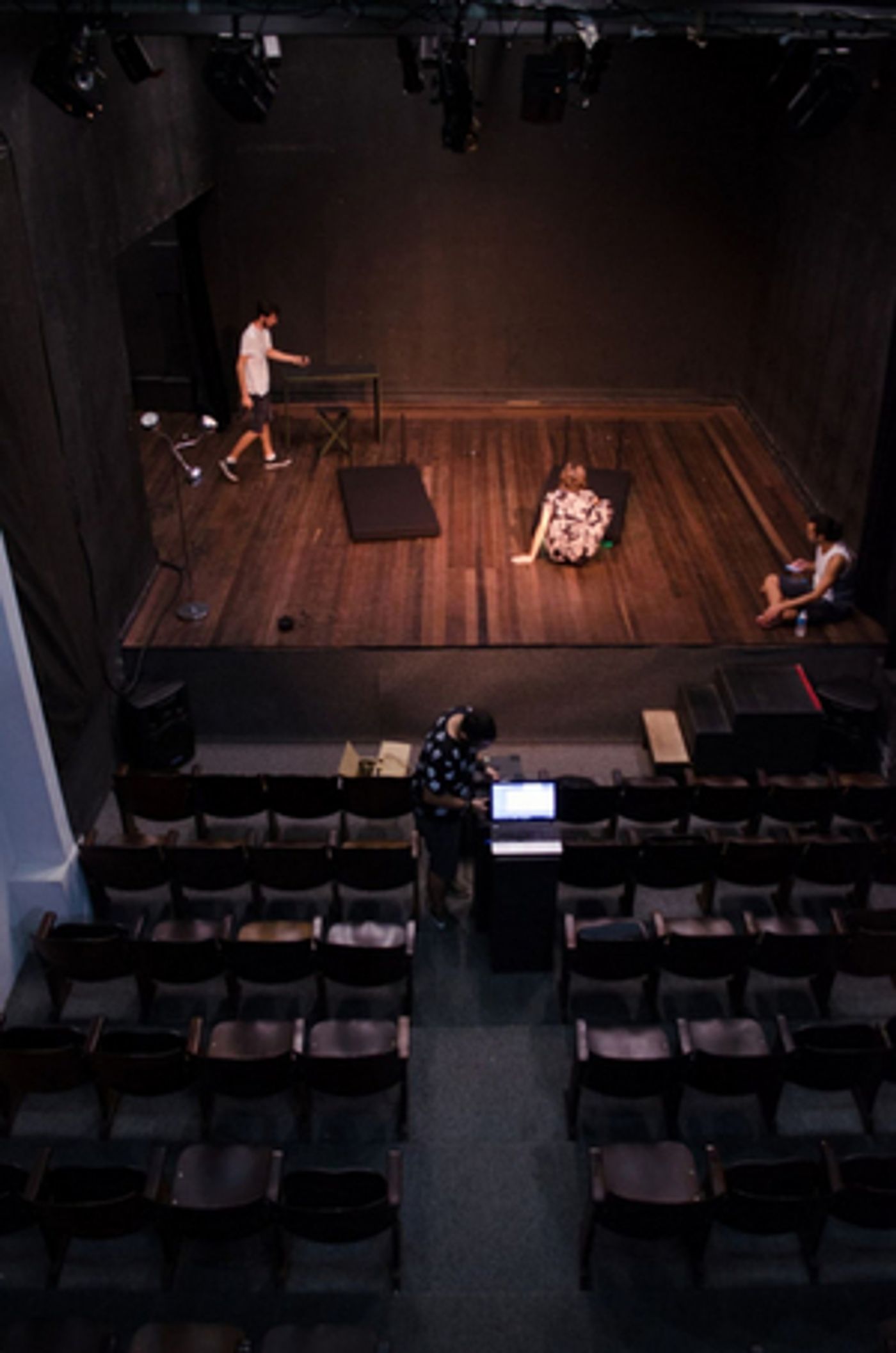Student Blog: Hip Hop and Theatre Belong Together
In a world of ballads and dance breaks, beats and bars and breakdancing also has a place.

In 2015, Broadway seemed to change overnight when Lin-Manuel Miranda's hip hop history blending musical Hamilton hit the stage at the Richard Rodgers Theatre. I remember reading multiple articles back then that seemed to say the same thing-- "Hip hop and theatre? Who knew!?" Well, anyone who knows anything about the history of theatre knew, and have known for decades. While Hamilton is definitely revolutionary in the way that it blends the different elements of its story with the form of music, it is far from the first show to bring beats and rhymes on the theatrical landscape, it is just the one that broke through the glass ceiling that others have only scratched at. What the show does reveal is that hip hop and the theatre are a perfect match.
One could say that hip hop and theatre, in a pure and raw sense, started back in the days of William Shakespeare. Not only did Shakespeare coin the word "swagger," which automatically gives him street cred, but he is known for writing in verse, sometimes using different rhyme schemes in order to express a character's feelings. Many people look at this and feel that it is merely a heightened language, a theatrical poetry, which is true, but what is the difference between that and rap music? When rap was founded in the '70's - with the first rise of the genre coming out of the Bronx - rap had a meaning. RAP: Rhythm and Poetry. The originators of the form specialized in telling stories, some even fully chronological, doing exactly what a song in a musical are supposed to do. Take the "I want" song. We all know examples of those. Think, "Santa Fe" from Newsies, "Corner of the Sky" from Pippin. Now think of Eminem's "Lose Yourself." We know theatrical love songs, like "Light My Candle" from RENT, but there is also "All I Need" by Method Man and Mary J. Blige, or even "Crazy in Love" by Beyonce and Jay Z. Not only does hip hop music perfectly fit the theatrical form and narrative, but it also does the job of giving lots of information in a short amount of time.
In continuation of history, there has always been a certain distaste of hip hop when it comes to theatre. Many critics feel that it is a less-than artform that doesn't belong on the posh, expensive stages of Manhattan. Sondheim was insulted for the use of a pseudo-rap for the Witch in Into the Woods, as was Andrew Lloyd Webber for a number in Starlight Express.  Though some shows like 1996's Bring in da Noise, Bring in da Funk were able to break through on the great white way, most of the time hip hop was subtly blended into traditional shows, used as a joke, or completely left out. Most of hip hop theatre's success came Off-Broadway, Off-Off-Broadway, and regionally with writers and performers such as the Q Brothers, Matt Sax, Marc Bamuthi Joseph and Will Power finding minor acclaim for their use of rhyme and the stage. Lin-Manuel Miranda had a hit with In the Heights but soon after came the Tupac-inspired show Holler If Ya Hear Me, which closed after 38 performances.
Though some shows like 1996's Bring in da Noise, Bring in da Funk were able to break through on the great white way, most of the time hip hop was subtly blended into traditional shows, used as a joke, or completely left out. Most of hip hop theatre's success came Off-Broadway, Off-Off-Broadway, and regionally with writers and performers such as the Q Brothers, Matt Sax, Marc Bamuthi Joseph and Will Power finding minor acclaim for their use of rhyme and the stage. Lin-Manuel Miranda had a hit with In the Heights but soon after came the Tupac-inspired show Holler If Ya Hear Me, which closed after 38 performances.
I suppose that I am not writing this to give a profile on why hip hop belongs intertwined with theatre, but moreso am asking "Why does not everyone see this the way that I do?" I grew up on hip hop music. I was in love with rap way before I was in love with theatre. And I love them for the same reason - - because when they are at their best they are telling stories in fresh new ways. They are using words and a backing track to engage an audience, or a listener, to bring them into an experience with the hope that their experience is being represented. So next time you listen to a good rap song, one with lyrical dexterity and a message, think about what it would sound like from the front row. And perhaps if more diverse styles of music are allowed center stage, a broader, more diverse audience, will follow.
Videos


